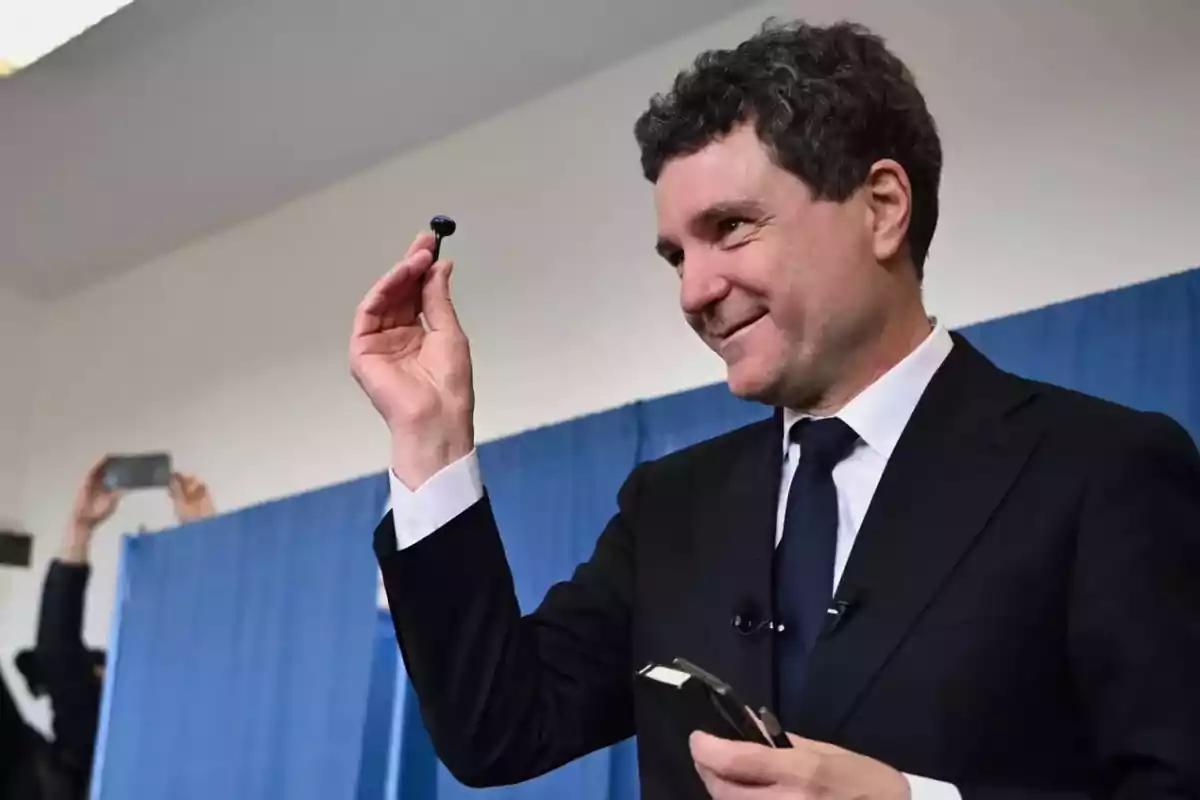
With an immense electoral fraud, the EU candidate won the elections in Romania.
The progressive candidate affiliated with the interests of the European Union, Nicusor Dan, claimed victory in Romania's presidential elections, which were filled with fraud
In a controversial turn, Nicușor Dan, current mayor of Bucharest and pro-European candidate, was declared the winner of Romania's presidential elections with 54% of the votes, compared to the 45% obtained by George Simion, leader of the right-wing party Alliance for the Union of Romanians (AUR).
However, the election day was marred by multiple allegations of fraud, which has sparked a deep political and social crisis in the country, as well as enormous discontent with the European Union.
Since Sunday night, Simion's supporters have shown their deep discontent in various cities, demanding greater transparency in the elections and an international audit of the process.
The allegations include clear irregularities in the counting, technical interruptions in the digital voting system, and the appearance of manipulated ballots in rural areas.

Meanwhile, the right-wing candidate Simion has denounced multiple shortages of ballots and other irregularities regarding the ballots corresponding to the diaspora, which are key for the candidate.
George Simion, who has capitalized on social discontent with a patriotic discourse, directly accused the political establishment and external forces linked to Brussels of orchestrating fraud to prevent his party's advance.
"The Romanian people have been betrayed. We do not recognize these results and demand new clean elections," he stated in a public declaration.

Amid growing protests and calls for transparency in the elections, the legitimacy of Dan's government is seriously questioned. Although the electoral authorities have ratified the result, sectors aligned with AUR and several independent observers have insisted on the need for an international investigation.
Social pressure threatens to paralyze key sectors of the country, from public administration to security.
The international community has followed the process with concern. Although the European Union and NATO initially welcomed Dan's victory, they are beginning to view with concern the multiple statements from the citizenry related to electoral fraud, and the evident deterioration of the image of supranational institutions in Romania.

Diplomatic sources indicate that Romania's political stability, a key piece on NATO's eastern flank, could be compromised if the shadow of fraud is not quickly dispelled.
This scenario poses a major challenge for Nicușor Dan, who takes office amid a deep national division. His ability to form a functional government and engage in dialogue with the opposition will be tested from day one.
Meanwhile, analysts warn that the crisis could be exploited by foreign powers, such as Russia, interested in weakening internal cohesion.
It is worth noting that earlier this year the Constitutional Court of Romania, close to the progressive authorities of the European Union, illegally declared null the elections in which the right-wing candidate Călin Georgescu had emerged victorious.
Romania thus faces a political crossroads: either it strengthens its institutions through a process of transparency and reconciliation, or it plunges into a spiral of polarization and distrust that could shape its course for the coming years.

More posts: